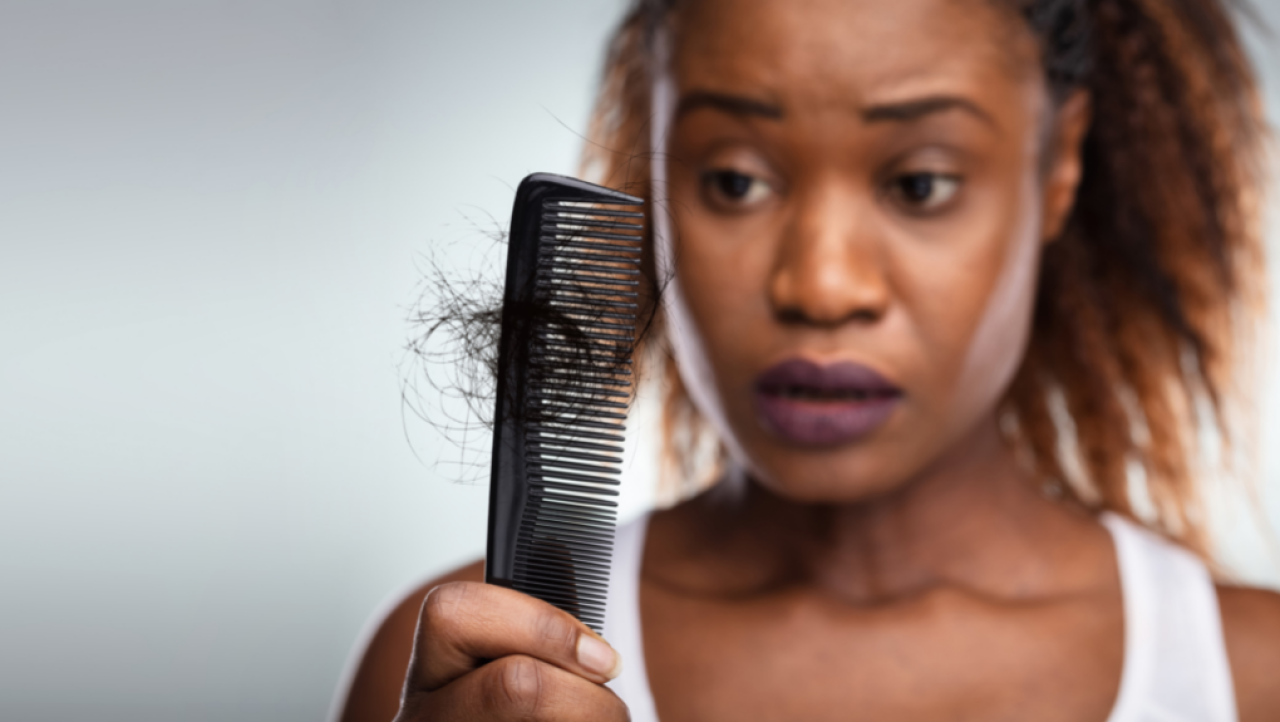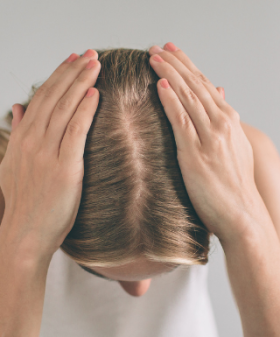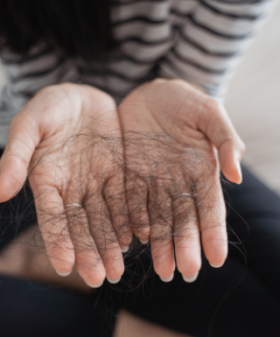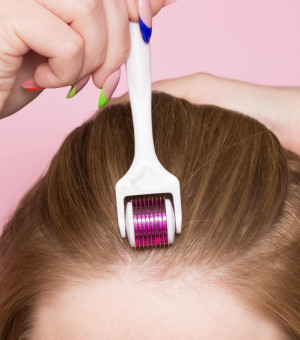Non-scarring hairloss causes
1.Telogen effluvium
This type of alopecia is often associated with a specific event involving physical or psychological stress, such as pregnancy and delivery.
Hair’s natural cycle can be divided into 2 phases: anagen and telogen. The anagen phase (growth cycle) lasts about 2 years. 90% of all hair is usually in that stage. The telogen phase (shedding cycle) lasts around 3 months. At any point, about 10% of all hair is in that phase and falls out.
Along with a physical or psychological stressor, a desynchronization in the hair cycle may happen and a large amount of hair may end up in the telogen phase (shedding cycle). There is usually stabilization 3 months after the event, but the shedding may last up to a year. Some patients may even develop a chronic telogen effluvium. There is no miracle cure and patience is the key. Minoxidil (Rogaine), which is sold over the counter, can help. It is good to know that this product can be covered by insurance if prescribed.
2. Androgenetic alopecia (baldness)
Androgenetic alopecia occurs in genetically predisposed people and can affect both men and women. We observe a reduction of hair density at the central vertex (central line of the scalp) starting in a person’s twenties and sometimes earlier. The treatment for this condition involves a combination of Minoxidil and oral Finasteride (Propecia). Minoxidil helps general hair growth and Finasteride inhibits the production of the male hormone that is responsible in shortening the hair follicle. These medications must be taken long term and a consultation with a dermatologist is advised. They will discuss the treatment, what other medication is to be avoided and possible side effects.
3.Alopecia areata (patchy baldness)
Alopecia areata is an auto-immune disease in which the body produces antibodies against its own hair. It manifests itself as round bald patches on the scalp. There is a 50% chance the patient will have a spontaneous recovery within a year. However, the risk of relapse is high (50%). The dermatologist is the key physician in the management of this condition. The first step in the treatment will be the application of a cortisone lotion twice a day. Follow up sessions with the dermatologist for cortisone injections on the patches may be required.
For any questions related to your personal situation, you can ask advice from our certified dermatologists at dermago.ca.






